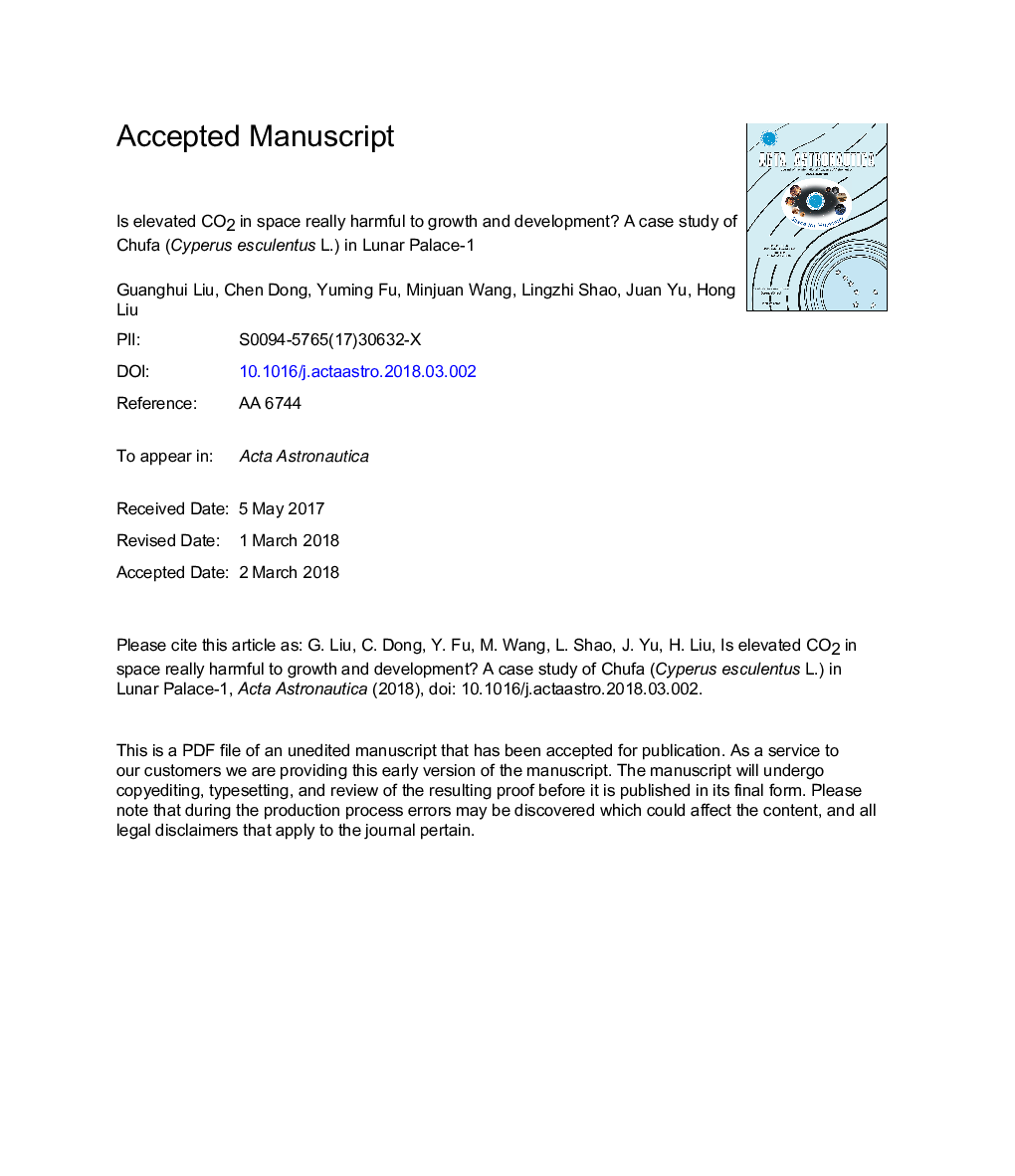| Article ID | Journal | Published Year | Pages | File Type |
|---|---|---|---|---|
| 8055603 | Acta Astronautica | 2018 | 24 Pages |
Abstract
CO2 concentration [CO2] level in artificial ecosystems such as greenhouse agriculture and space farming can easily exceed 1000â¯Î¼molâ¯molâ1 (or ppm). In order to understand how the growth and development in crop plants may respond to elevated CO2, it is necessary to determine if crop leaves in the closed artificial ecosystem have a fully developed photosynthetic apparatus, and whether or not photosynthesis in these leaves is more responsive to elevated CO2 concentration. To address this issue, we evaluated the response of photosynthetic characteristics, leaf water status and antioxidant capacity of Chufa (Cyperus esculentus L.), which is a sedge-like plant with 1-2â¯cm small sweet tubers in length, under elevated CO2 concentrations in an artificial closed ecosystem. The results showed that Chufa plants cultivated in the elevated CO2 environment from the seedling stage to the maturity stage were characterized by more appropriate chlorophyll content and photosynthetic rate. The photosynthetic rate of Chufa plants in the 1000 and 3000â¯ppm treatments was no significant difference with that in 500â¯ppm CO2 condition both at seedling stage and rapid growth stage. All the treatments had a high relative water content (RWC) about 60% at the maturity stage. However, there was no significant difference in membrane stability index (MSI) at the rapid growth stage. The antioxidase enzymes activities experienced a rise and a drop and reached the peak at the rapid growth stage. Elevated CO2, especially more than 1000â¯ppm conditions, may accelerant Chufa plants aging process.
Related Topics
Physical Sciences and Engineering
Engineering
Aerospace Engineering
Authors
Guanghui Liu, Chen Dong, Yuming Fu, Minjuan Wang, Lingzhi Shao, Juan Yu, Hong Liu,
